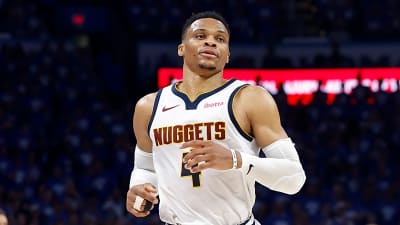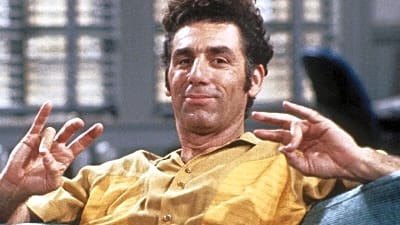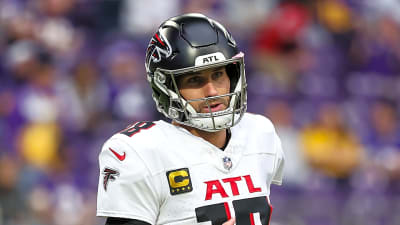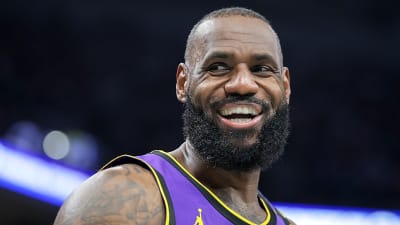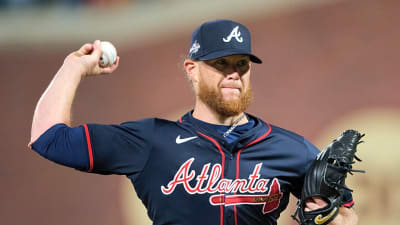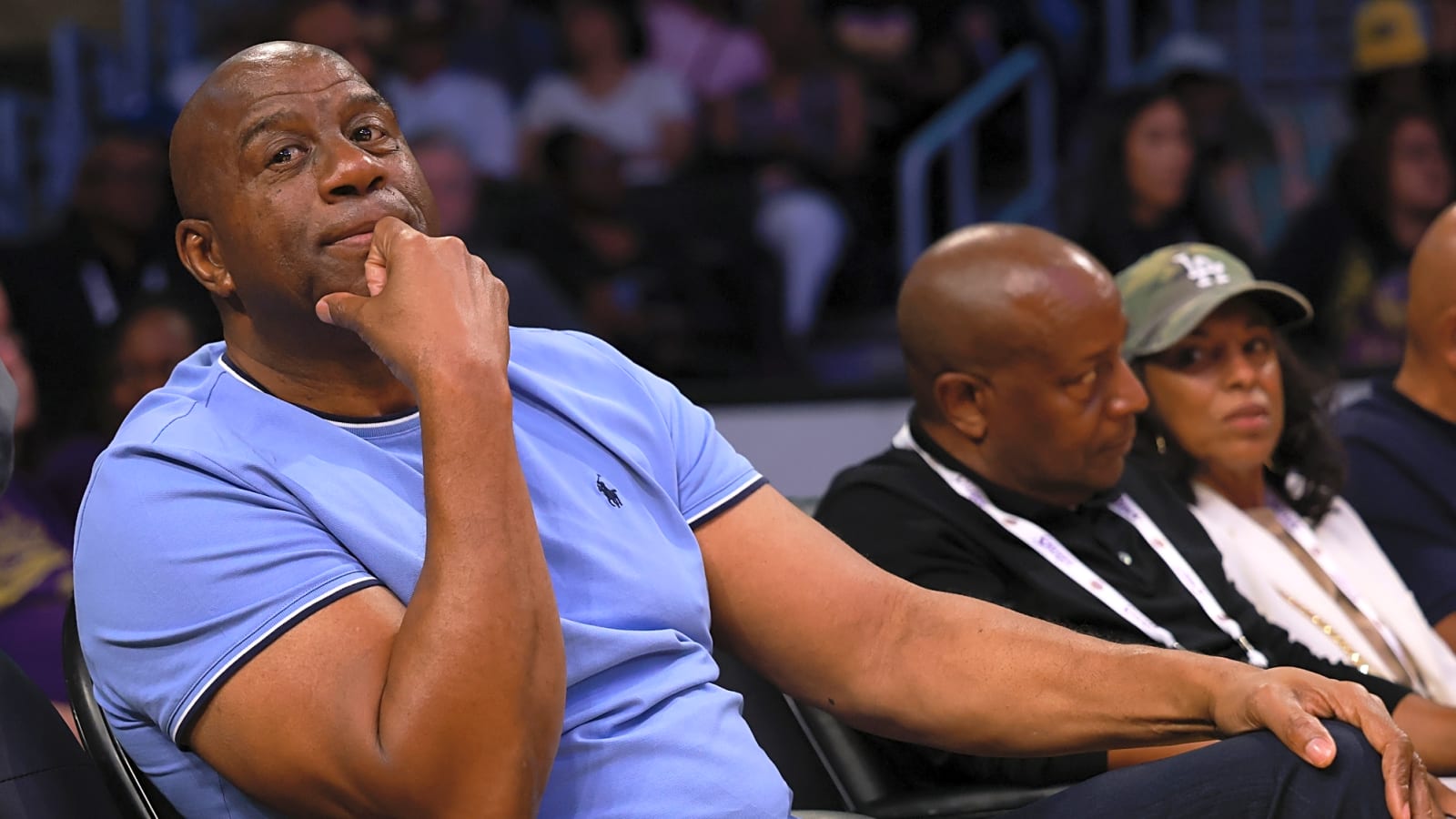
NBA legend Magic Johnson appeared on First Take and delivered one of the most compelling breakdowns of what defines a “true” superstar in the NBA. In a league overflowing with talent, where All-Stars are minted every season and highlight reels dominate social media, Johnson cut through the noise with a definition rooted in legacy, emotion, and market power.
"A person who can go on the road and sell the building. Simple. I'm going to see that person... You gotta be box office. A superstar gotta say, man, or you're running home from the office and saying, oh, I gotta see him on TV."
"Larry Bird, people running home, Shaq, people running home, Kobe, people running home. And then of course, the greatest that has ever played, Michael Jordan, people going, running home to see him, or they're trying their best to get into the arena to see that brother play."
"That's a superstar who could go on the road and sell the building now."
He invoked names that need no context, Larry Bird, Shaquille O’Neal, Kobe Bryant, and Michael Jordan, players whose very presence could fill arenas across the country. These weren’t just athletes; they were events.
When they came to town, ticket prices spiked, camera crews swarmed, and fans dropped everything just for a glimpse. Magic’s message was clear: star power is about more than scoring titles and accolades; it’s about pull.
But Magic went deeper, defining a superstar not just by their draw, but by their impact.
"Superstar player, they gotta lead you to the championship. And it's gotta mean so much to them. It's gotta be painful. It's gotta hurt, you know? And so a superstar is a guy who makes his teammates better."
"It's not just getting yours, but how do you also inspire the other guys to bring them up to a level? That's a superstar to me. That makes an impact on that team, in that locker room, in that city."
That blend, commercial magnetism and championship urgency, is rare. And it’s what separates great players from generational icons.
This comes at a time when the league is filled with emerging stars. Tyrese Haliburton and Shai Gilgeous-Alexander have led their franchises to the NBA Finals, playing smart, selfless, and elite basketball. Statistically, both have delivered superstar-caliber production.
But do they draw the same nationwide frenzy? Do casual fans rearrange their evenings to watch them play? Do opposing arenas buzz with electricity when they enter the court?
That's the conundrum: performance doesn't always equal presence.
Right now, the NBA has a long list of elite players: Jayson Tatum, Devin Booker, Anthony Edwards, and Donovan Mitchell. But in terms of Magic’s definition, those who can lead on the biggest stage and sell out buildings wherever they go, only a handful truly qualify.
LeBron James and Stephen Curry are the obvious examples. Their stardom transcends the game. Kevin Durant and Giannis Antetokounmpo still carry that box office allure. Nikola Jokic, while less flashy, has earned his place with undeniable dominance and with three MVP-caliber seasons.
And then there's the future: Luka Doncic and Victor Wembanyama. Luka already has the skill and flair; Wemby, the mystique and marketability. Both could become the faces of the league, but they still have championships to chase and legacies to build.
Ultimately, Magic’s take is a reminder that true superstardom is not just about what you do on the court, it’s about how the world responds when you do it.
More must-reads:
- Five takeaways from Game 4 of the NBA Finals: MVP moment for the MVP
- Knicks legend breaks silence on Tom Thibodeau firing
- The 'Most points off the bench in an NBA Finals game' quiz
Customize Your Newsletter
 +
+
Get the latest news and rumors, customized to your favorite sports and teams. Emailed daily. Always free!
